#group acts
Text
I saw a post that said “Dragon Age discourse walked so that Baldurs Gate 3 discourse could run” and that’s absolutely false. Dragon Age discourse sprinted, foaming at the mouth, so that BG3 discourse could skip happily through a meadow
#that OP clearly wasn’t in the DA fandom when Inquisition came out lmao#people acted like mages were a real life opressed group#don’t even get me started on the discourse around which romance options were justified and which ones meant you were a bigot/abuser/etc#is Astarion existed in Dragon Age people would literallt never stop fighting about him I can tell u that much
4K notes
·
View notes
Note
I just started following you for your Viceroy AU! My question is, why is Adrien disillusioned with his mom? Dad I can understand, but what happened with his mom?





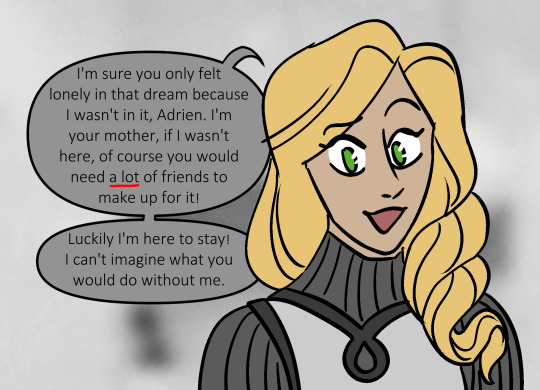

no big arguments or anything, but Adrien got to go through the slow, dreadful realization that your kinder parent thinks you're uselessly dependent on them. (and she likes it that way.)
#my art#dad villain au#adrien agreste#emelie agreste#long post#ever had a popular friend act condescending towards you like you were a dog they adopted into a social group? yeah
4K notes
·
View notes
Text

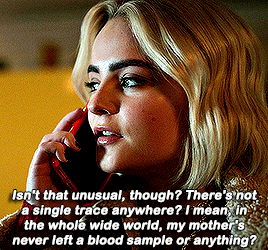

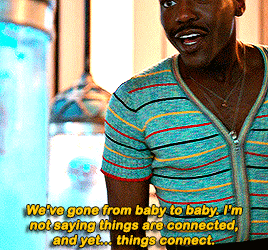



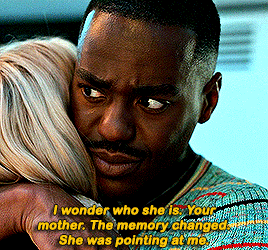
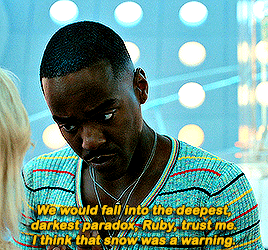



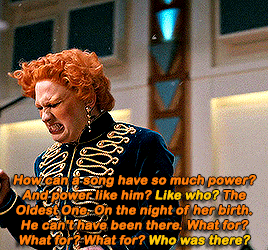
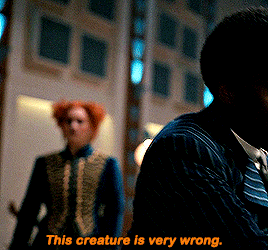
This is a brand new science for me, and I love it. The language of luck. 'Cause what is a coincidence but a form of accident? Two things bumping together unexpectedly. Like you and me.
#dwedit#doctor who#usertennant#userteri#userveronika#miatendos#userdiana#usertreena#ruby sunday#fifteenth doctor#maestro#*#originally this was just going to be ruby + snow and then it devolved from there#memories changing... being brought into the present..... some connection to the ancient one. luck coincidences connections.#the doctor describes the legion as a 'pantheon'; a group of gods. and so far they're all personifications#the toymaker is 'a living game'; maestro is 'the essence of music itself'; henry arbinger = harbinger and acts as prelude to the gods#then 'the one who waits' is perhaps... time? death?#and 'the oldest one'... that could mean a lot of things#my first thought was that the oldest one would be death since the finale is called 'the empire of death'. alternatively: life.#but if you connect it back to ruby: luck coincidences connections. so far that's been her whole thing. so maybe something related to that#then again we're only on ep 2 of 8 so... anyway. idk what any of this means but. thinking thoughts!!!#worth noting: if the snow is a warning it starts snowing in the tardis during the scan. it reveals her genetic id/species/age#but not her nucleotide composition. whatever tf that is. and it only gets to 75% complete before it pans away. but it does finish scanning#and in canon 6+ months pass between the end of ep 1 and the beginning of ep 2 so... presumably the doctor has SEEN those results. fwiw.
1K notes
·
View notes
Text

colour palette requests - Gale
#i was contemplating posting these in one big group but you know what? it'll just be a little treat each day#i love that this guy just grabs your hand in the first act and holds it to his chest like that's not incredibly romantic#bg3 gale#gale of waterdeep#baldurs gate 3
2K notes
·
View notes
Text

You grew, but some things never change
#arknights#eyjafjalla#ifrit#dlarts#punk and pastel#i like how iffy pulls off the jp school rebel style#i know eyja is older than iffy but hg can't make up their minds on how much#putting them in the same peer group for ifrit to act as captain over#fiddling on whether eyja can drink or not#putting her in childish cutesy skins#oh well who cares; i like how they visibly give her hearing aids
549 notes
·
View notes
Text
I'm not explaining why re-imagining characters as POC is not the same as white-washing, here of all places should fucking understand.
#personal#delete later#no patrick. “black washing” is not as harmful as white washing.#come on guys get it together#seeing people in my reblogs talk about “reverse racism” and double standards is genuinely hypocrisy#say it with me: white washing is intrinsically tied to a historical and systematic erasure of poc figures literature and history.#it is an inherently destructive act that deplatforms underrepresented faces and voices#in favor of a light-skinned aesthetic hegemony#redesigning characters as poc is an act of dismantling symbols of whiteness in fiction in favor of diversification and reclamation#(note that i am talking about individual acts by individual artists as was the topic of this discourse. not on an industry-scale)#redesigning characters as poc is not tied to hundreds of years of systemic racism and abuse and power dynamics. that is a fact.#you are not replacing an underrepresented person with an oft-represented person. it is the opposite#if you feel threatened or upset or uncomfortable about this then sorry but you are not aware of how much more worse it is for poc#if representation is unequal then these acts cannot be equivalent. you can't point to an imbalanced scale and say they weigh the same#if you recognize that bipoc people are minorities then you should recognize that these two things are not the same#while i agree that “black washing” can lead to color-blind casting and writing the behavior here is on an individual level#a black artist drawing their favorite anime character as black because they feel a shared solidarity is not a threat to you#i mean. most anime characters are east asian and i as an east asian person certainly don't feel threatened or erased. neither should you.#there's much to be said about the politics of blackwashing (i don't even know if that's the right word for it)#but point standing. whitewashing is an inherently more destructive act. both through its history of maintaining power dynamics#and the simple fact that it's taking away from groups of people who have less to begin with#if you feel upset or uncomfortable about a fictional white character being redesigned as poc by an artist on twitter#i sincerely hope you're able to explore these feelings and find avenues to empathizing with poc who have had their figures#(both real and fictional) erased; buried; and replaced by white figures for hundreds of years#i sincerely hope you can understand the difference in motivations and connotations behind whitewashing and blackwashing#classic bixels “i'm not talking about this chat. i'm not” (puts my media studies major to use in the tags and talks the fuck outta it)
1K notes
·
View notes
Text
i've been so used to the online space where if you like a series or fictional character that someone else hates they will openly berate you and cut you out of their life and tell you to Go Die so when i got into a thing that a friend really didn't like and their only reaction was "i do not like it" and left it at that with no over the top reaction or lecture on Why The Thing They Don't Like Is Bad, honestly i felt like i met god
#i am often reminded my irl friend group is made up of people who act like actual mature adults and every day i am so fucking grateful for it#when i see people going on like: if you like xyz fandom or character you are blocked on sight yes i will kill a friendship over this#my reaction is always something along the lines of: well okay let me just preemptively make sure you and i don't interact ever again ???#and it's NEVER THE TEENS MAKIN THESE POSTS!! WHICH IS WHAT TERRIFIES ME#it's always grownass adults that should be more concerned with idk!!! taxes!! work!! the news!!! LITERALLY ANYTHING THAT ACTUALLY MATTERS
843 notes
·
View notes
Text
the difference between karkat and kankri when it comes to their shared aspect of blood is that karkat, as a knight, will protect and cultivate the bonds between his friends and will form connections with others easily due to his empathetic nature, even if said others are fucked up people in the eyes of others (see: his whole deal with spades slick, the way he formed moriallegience with rampaging gamzee), people naturally come into his orbit, meanwhile kankri being a seer doesnt want to create a connection between himself and others, but he wants to understand and study how those bonds work between people, basically looking outside in on the relationships and forming a list of do's and dont's when it comes to cultivating that connection
in other words, karkats that one motherfucker at the party whos somehow friends with everyone here, no matter their background, and everyone fucking loves that foul-mouthed guy, meanwhile kankri is standing in the corner like a creep and nobody knows exactly what his deal is but he knows what everyones deal is and somehow has knowledge of all of partygoers dirty laundry, even if theyve never seen him in their fucking life
#homestuck#kankri vantas#karkat vantas#karkats agressive appreciation of his friends vs kankris stalker-ish tendency to dig into everyones business#this doesnt touch upon the fact that kankris metatextually IS a failed seer but thats a post for another day#i love the dichotomy between these two and how much differently they use their aspect when it comes to group bonding#fascinating stuff#do you think kankris jealous about how easily karkat can make friends when his own act only manages to push people away#i think he is very much yes
600 notes
·
View notes
Text
Surveillance pricing

THIS WEEKEND (June 7–9), I'm in AMHERST, NEW YORK to keynote the 25th Annual Media Ecology Association Convention and accept the Neil Postman Award for Career Achievement in Public Intellectual Activity.

Correction, 7 June 2024: The initial version of this article erroneously described Jeffrey Roper as the founder of ATPCO. He benefited from ATPCO, but did not co-found it. The initial version of this article called ATPCO "an illegal airline price-fixing service"; while ATPCO provides information that the airlines use to set prices, it does not set prices itself, and while the DOJ investigated the company, they did not pursue a judgment declaring the service to be illegal. I regret the error.
Noted anti-capitalist agitator Adam Smith had it right: "People of the same trade seldom meet together, even for merriment and diversion, but the conversation ends in a conspiracy against the public, or in some contrivance to raise prices."
Despite being a raving commie loon, Smith's observation was so undeniably true that regulators, policymakers, and economists couldn't help but acknowledge that it was true. The trustbusting era was defined by this idea: if we let the number of companies in a sector get too small, or if we let one or a few companies get too big, they'll eventually start to rig prices.
What's more, once an industry contracts corporate gigantism, it will become too big to jail, able to outspend and overpower the regulators charged with reining in its cheating. Anyone who believes Smith's self-evident maxim had to accept its conclusion: that companies had to be kept smaller than the state that regulated them. This wasn't about "punishing bigness" – it was the necessary precondition for a functioning market economy.
We kept companies small for the same reason that we limited the height of skyscrapers: not because we opposed height, or failed to appreciate the value of a really good penthouse view – rather, to keep the building from falling over and wrecking all the adjacent buildings and the lives of the people inside them.
Starting in the neoliberal era – Carter, then Reagan – we changed our tune. We liked big business. A business that got big was doing something right. It was perverse to shut down our best companies. Instead, we'd simply ban big companies from rigging prices. This was called the "consumer welfare" theory of antitrust. It was a total failure.
40 years later, nearly every industry is dominated by a handful of companies, and these companies price-gouge us with abandon. Worse, they use their gigantic ripoff winnings to fill war-chests that fund the corruption of democracy, capturing regulators so that they can rip us off even more, while ignoring labor, privacy and environmental law and ducking taxes.
It turns out that keeping gigantic, opaque, complex corporations honest is really hard. They have so many ways to shuffle money around that it's nearly impossible to figure out what they're doing. Digitalization makes things a million times worse, because computers allow businesses to alter their processes so they operate differently for every customer, and even for every interaction.
This is Dieselgate times a billion: VW rigged its cars to detect when they were undergoing emissions testing and switch to a less polluting, more compliant mode. But when they were on the open road, they spewed lethal quantities of toxic gas, killing people by the thousands. Computers don't make corporate leaders more evil, but they let evil corporate leaders execute far more complex and nefarious plans. Digitalization is a corporate moral hazard, making it just too easy and tempting to rig the game.
That's why Toyota, the largest car-maker in the world, just did Dieselgate again, more than a decade later. Digitalization is a temptation no giant company can resist:
https://www.bbc.com/news/articles/c1wwj1p2wdyo
For forty years, pro-monopoly cheerleaders insisted that we could allow companies to grow to unimaginable scale and still prevent cheating. They passed rules banning companies from explicitly forming agreements to rig prices. About ten seconds later, new middlemen popped up offering "information brokerages" that helped companies rig prices without talking to one another.
Take Agri Stats: the country's hyperconcentrated meatpacking industry pays Agri Stats to "consult on prices." They provide Agri Stats with a list of their prices, and then Agri Stats suggests changes based on its analysis. What does that analysis consist of? Comparing the company's prices to its competitors, who are also Agri Stats customers:
https://pluralistic.net/2023/10/04/dont-let-your-meat-loaf/#meaty-beaty-big-and-bouncy
In other words, Agri Stats finds the highest price for each product in the sector, then "advises" all the companies with lower prices to raise their prices to the "competitive" level, creating a one-way ratchet that sends the price of food higher and higher.
More and more sectors have an Agri Stats, and digitalization has made this price-gouging system faster, more efficient, and accessible to sectors with less concentration. Landlords, for example, have tapped into Realpage, a "data broker" that the same thing to your rent that Agri Stats does to meat prices. Realpage requires the landlords who sign up for its service to accept its "recommendations" on minimum rents, ensuring that prices only go up:
https://popular.info/p/feds-raid-corporate-landlord-escalating
Writing for The American Prospect, Luke Goldstein lays out the many ways in which these digital intermediaries have supercharged the business of price-rigging:
https://prospect.org/economy/2024-06-05-three-algorithms-in-a-room/
Goldstein identifies a kind of patient zero for this ripoff epidemic: Jeffrey Roper, a former Alaska Air exec who benefited from a service that helps airlines set prices. ATPCO was investigated by the DOJ in the 1990s, but the enforcers lost their nerve and settled with the company, which agreed to apply some ornamental fig-leafs to its collusion-machine. Even those cosmetic changes were seemingly a bridge too far Roper, who left the US.
But he came back to serve as Realpage's "principal scientist" – the architect of a nationwide scheme to make rental housing vastly more expensive. For Roper, the barrier to low rents was empathy: landlords felt stirrings of shame when they made shelter unaffordable to working people. Roper called these people "idiots" who sentimentality "costs the whole system."
Sticking a rent-gouging computer between landlords and the people whose lives they ruin is a classic "accountability sink," as described in Dan Davies' new book "The Unaccountability Machine: Why Big Systems Make Terrible Decisions – and How The World Lost its Mind":
https://profilebooks.com/work/the-unaccountability-machine/
It's a form of "empiricism washing": if computers are working in the abstract realm of pure numbers, they're just moving the objective facts of the quantitative realm into the squishy, imperfect qualitative world. Davies' interview on Trashfuture is excellent:
https://trashfuturepodcast.podbean.com/e/fire-sale-at-the-accountability-store-feat-dan-davies/
To rig prices, an industry has to solve three problems: the problem of coming to an agreement to fix prices (economists call this "the collective action problem"); the problem of coming up with a price; and the problem of actually changing prices from moment to moment. This is the ripoff triangle, and like a triangle, it has many stable configurations.
The more concentrated an industry is, the easier it is to decide to rig prices. But if the industry has the benefit of digitalization, it can swap the flexibility and speed of computers for the low collective action costs from concentration. For example, grocers that switch to e-ink shelf tags can make instantaneous price-changes, meaning that every price change is less consequential – if sales fall off after a price-hike, the company can lower them again at the press of a button. That means they can collude less explicitly but still raise prices:
https://pluralistic.net/2024/03/26/glitchbread/#electronic-shelf-tags
My name for this digital flexibility is "twiddling." Businesses with digital back-ends can alter their "business logic" from second to second, and present different prices, payouts, rankings and other key parts of the deal to every supplier or customer they interact with:
https://pluralistic.net/2023/02/19/twiddler/
Not only does twiddling make it easier to rip off suppliers, workers and customers, it also makes these crimes harder to detect. Twiddling made Dieselgate possible, and it also underpinned "Greyball," Uber's secret strategy of refusing to send cars to pick up transportation regulators who would then be able to see firsthand how many laws the company was violating:
https://www.nytimes.com/2017/03/03/technology/uber-greyball-program-evade-authorities.html
Twiddling is so easy that it has brought price-fixing to smaller companies and less concentrated sectors, though the biggest companies still commit crimes on a scale that put these bit-players to shame. In The Prospect, David Dayen investigates the "personalized pricing" ripoff that has turned every transaction into a potential crime-scene:
https://prospect.org/economy/2024-06-04-one-person-one-price/
"Personalized pricing" is the idea that everything you buy should be priced based on analysis of commercial surveillance data that predicts the maximum amount you are willing to pay.
Proponents of this idea – like Harvard's Pricing Lab with its "Billion Prices Project" – insist that this isn't a way to rip you off. Instead, it lets companies lower prices for people who have less ability to pay:
https://thebillionpricesproject.com/
This kind of weaponized credulity is totally on-brand for the pro-monopoly revolution. It's the same wishful thinking that led regulators to encourage monopolies while insisting that it would be possible to prevent "bad" monopolies from raising prices. And, as with monopolies, "personalized pricing" leads to an overall increase in prices. In econspeak, it is a "transfer of wealth from consumer to the seller."
"Personalized pricing" is one of those cuddly euphemisms that should make the hair on the back of your neck stand up. A more apt name for this practice is surveillance pricing, because the "personalization" depends on the vast underground empire of nonconsensual data-harvesting, a gnarly hairball of ad-tech companies, data-brokers, and digital devices with built-in surveillance, from smart speakers to cars:
https://pluralistic.net/2024/03/12/market-failure/#car-wars
Much of this surveillance would be impractical, because no one wants their car, printer, speaker, watch, phone, or insulin-pump to spy on them. The flexibility of digital computers means that users always have the technical ability to change how these gadgets work, so they no longer spy on their users. But an explosion of IP law has made this kind of modification illegal:
https://locusmag.com/2020/09/cory-doctorow-ip/
This is why apps are ground zero for surveillance pricing. The web is an open platform, and web-browsers are legal to modify. The majority of web users have installed ad-blockers that interfere with the surveillance that makes surveillance pricing possible:
https://doc.searls.com/2023/11/11/how-is-the-worlds-biggest-boycott-doing/
But apps are a closed platform, and reverse-engineering and modifying an app is a literal felony – several felonies, in fact. An app is just a web-page skinned with enough IP to make it a felony to modify it to protect your consumer, privacy or labor rights:
https://pluralistic.net/2024/05/07/treacherous-computing/#rewilding-the-internet
(Google is leading a charge to turn the web into the kind of enshittifier's paradise that apps represent, blocking the use of privacy plugins and proposing changes to browser architecture that would allow them to felonize modifying a browser without permission:)
https://pluralistic.net/2023/08/02/self-incrimination/#wei-bai-bai
Apps are a twiddler's playground. Not only can they "customize" every interaction you have with them, but they can block you (or researchers seeking to help you) from recording and analyzing the app's activities. Worse: digital transactions are intimate, contained to the palm of your hand. The grocer whose e-ink shelf-tags flicker and reprice their offerings every few seconds can be collectively observed by people who are in the same place and can start a conversation about, say, whether to come back that night a throw a brick through the store's window to express their displeasure. A digital transaction is a lonely thing, atomized and intrinsically shielded from a public response.
That shielding is hugely important. The public hates surveillance pricing. Time and again, through all of American history, there have been massive and consequential revolts against the idea that every price should be different for every buyer. The Interstate Commerce Commission was founded after Grangers rose up against the rail companies' use of "personalized pricing" to gouge farmers.
Companies know this, which is why surveillance pricing happens in secret. Over and over, every day, you are being gouged through surveillance pricing. The sellers you interact with won't tell you about it, so to root out this practice, we have to look at the B2B sales-pitches from the companies that sell twiddling tools.
One of these companies is Plexure, partly owned by McDonald's, which provides the surveillance-pricing back-ends for McD's, Ikea, 7-Eleven, White Castle and others – basically, any time a company gives you a hard-sell to order via its apps rather than its storefronts or its website, you should assume you're getting twiddled, hard.
These companies use the enshittification playbook to trap you into using their apps. First, they offer discounts to customers who order through their apps – then, once the customers are fully committed to shopping via app, they introduce surveillance pricing and start to jack up the prices.
For example, Plexure boasts that it can predict what day a given customer is getting paid on and use that information to raise prices on all the goods the customer shops for on that day, on the assumption that you're willing to pay more when you've got a healthy bank balance.
The surveillance pricing industry represents another reason for everything you use to spy on you – any data your "smart" TV or Nest thermostat or Ring doorbell can steal from you can be readily monetized – just sell it to a surveillance pricing company, which will use it to figure out how to charge you more for everything you buy, from rent to Happy Meals.
But the vast market for surveillance data is also a potential weakness for the industry. Put frankly: the commercial surveillance industry has a lot of enemies. The only thing it has going for it is that so many of these enemies don't know that what's they're really upset about is surveillance.
Some people are upset because they think Facebook made Grampy into a Qanon. Others, because they think Insta gave their kid anorexia. Some think Tiktok is brainwashing millennials into quoting Osama bin Laden. Some are upset because the cops use Google location data to round up Black Lives Matter protesters, or Jan 6 insurrectionists. Some are angry about deepfake porn. Some are angry because Black people are targeted with ads for overpriced loans or colleges:
https://www.theregister.com/2024/06/04/meta_ad_algorithm_discrimination/
And some people are angry because surveillance feeds surveillance pricing. The thing is, whatever else all these people are angry about, they're all angry about surveillance. Are you angry that ad-tech is stealing a 51% share of news revenue? You're actually angry about surveillance. Are you angry that "AI" is being used to automatically reject resumes on racial, age or gender grounds? You're actually angry about surveillance.
There's a very useful analogy here to the history of the ecology movement. As James Boyle has long said, before the term "ecology" came along, there were people who cared about a lot of issues that seemed unconnected. You care about owls, I care about the ozone layer. What's the connection between charismatic nocturnal avians and the gaseous composition of the upper atmosphere? The term ecology took a thousand issues and welded them together into one movement.
That's what's on the horizon for privacy. The US hasn't had a new federal consumer privacy law since 1988, when Congress acted to ban video-store clerks from telling the newspapers what VHS cassettes you were renting:
https://en.wikipedia.org/wiki/Video_Privacy_Protection_Act
We are desperately overdue for a new consumer privacy law, but every time this comes up, the pro-surveillance coalition defeats the effort. but as people who care about conspiratorialism, kids' mental health, spying by foreign adversaries, phishing and fraud, and surveillance pricing all come together, they will be an unbeatable coalition:
https://pluralistic.net/2023/12/06/privacy-first/#but-not-just-privacy
Meanwhile, the US government is actually starting to take on these ripoff artists. The FTC is working to shut down data-brokers:
https://pluralistic.net/2023/08/16/the-second-best-time-is-now/#the-point-of-a-system-is-what-it-does
The FBI is raiding landlords to build a case against Frontpage and other rent price-fixers:
https://popular.info/p/feds-raid-corporate-landlord-escalating
Agri Stats is facing a DoJ lawsuit:
https://www.nationalhogfarmer.com/market-news/agri-stats-loses-motions-to-transfer-dismiss-in-doj-antitrust-case
Not every federal agency has gotten the message, though. Trump's Fed Chairman, Jerome Powell – whom Biden kept on the job – has been hiking interest rates in a bid to reduce our purchasing power by making millions of Americans poorer and/or unemployed. He's doing this to fight inflation, on the theory that inflation is being cause by us being too well-off, and therefore trying to buy more goods than are for sale.
But of course, interest rates are inflationary: when interest rates go up, it gets more expensive to pay your credit card bills, lease your car, and pay a mortgage. And where we see the price of goods shooting up, there's abundant evidence that this is the result of greedflation – companies jacking up their prices and blaming inflation. Interest rate hawks say that greedflation is impossible: if one company raises its prices, its competitors will swoop in and steal their customers with lower prices.
Maybe they would do that – if they didn't have a toolbox full of algorithmic twiddling options and a deep trove of surveillance data that let them all raise prices together:
https://prospect.org/blogs-and-newsletters/tap/2024-06-05-time-for-fed-to-meet-ftc/
Someone needs to read some Adam Smith to Chairman Powell: "People of the same trade seldom meet together, even for merriment and diversion, but the conversation ends in a conspiracy against the public, or in some contrivance to raise prices."

If you'd like an essay-formatted version of this post to read or share, here's a link to it on pluralistic.net, my surveillance-free, ad-free, tracker-free blog:
https://pluralistic.net/2024/06/05/your-price-named/#privacy-first-again

Image:
Cryteria (modified)
https://commons.wikimedia.org/wiki/File:HAL9000.svg
CC BY 3.0
https://creativecommons.org/licenses/by/3.0/deed.en
#pluralistic#david dayen#the american prospect#surveillance advertising#commercial surveillance#predictive pricing#monopolism#monopolies#antitrust#unfair and deceptive method of competition#ftc act Section 5#ftca5#ripoffs#surveillance#twiddling#ip#apps#apps are shit#ziprecruiter#personalized pricing#price gouging#just and reasonable#interstate commerce act#one person one price#surveillance pricing#privacy first#billion prices project#ecommerce#ninetailed#cortado group
420 notes
·
View notes
Text

Try these out!
#my art#fan art#what we do in the shadows#wwdits#nandor the relentless#monster high#draculaura#mh g3#redrew an oldie#bc I didn't like it the first time and now I love it#she's older than him by like 900 years#but she's NICER and also not afraid to break societal norms that would prevent her from dating a certain group of ppl#and also they're friends#they probably wouldn't be friends#but i think they could talk about how lonely it can get. living for so long. until you meet the right group of people#i think they would tell anecdotes to each other. once Nandor got past the silly relentless warrior act. and she finally got to talk to-#someone closer to her age that didn't look down on her#idk man I just think about characters so much. I want them all to be buddies#AND ALSO THEYRE BOTH ASIAN YAY
421 notes
·
View notes
Text

happy birthday to our most beloved will byers :) here're some byler grease concept sketches
#byler#byler fanart#byler grease au#sandy will and danny mike#we've got the angelic pure imagery protagonist#who feels confused and betrayed by the group leader character#(who is like the corniest person alive)#because he is pressured by the norms of american high school to change the way he acts around them#DON'T YOU SEE#and then in the end they both compromise some of that to be happy in love#it's a story of change and LOVE#guys#when i tell you i'm so unwell about this#will byers#will byers fanart#mike wheeler#mike wheeler fanart#stranger things#stranger things 4#my art
3K notes
·
View notes
Text
Prompt 277
Danny would be pouting, but this? This is actually kind of hilarious. He’d be laughing his ass off if he could, but allows himself to shriek excitedly around the binky in his mouth. Jordan on the other hand has no such thing stopping him, letting out his own toddler cackle as something bursts into flames.
Their current caretaker- Clockwork’s nephew apparently, who is on babysitting duty for the next couple of decades- coos, and then they’re off again. Someone had apparently wanted their sort-of-Fraid-member to go to a meeting despite him informing them he’d be unavailable.
So of course he- and the three of them and Ms. Teekl the cat- just had to set the whole place on fire. You honestly can’t be that rude! It’s like, not exactly maternity leave, but something similar- don’t make fun of him he’s stuck with a toddler-brain right now!
(All three of them would’ve had completely toddler minds if not for the fact that they were partially made from ectoplasm)
Really, it was perfectly normal for them to set the building aflame and disappear into another dimension, even if maybe not for humans. Everyone knew you didn’t try to mess with a nesting Realms being! Especially if they weren’t fully Fraid yet. Honestly it’s all the idiots’ fault.
#Prompts#DCxDP#DPxDC#Deaged Danny#Deaged Ellie#Deaged Dan#Halfas are like phoenixes in the fact they have to rebuild their flesh bodies too#So off to another dimension so they don’t have to worry about their own world#Klarion with triplet children: This is going to cause so much Chaos >:3#Space Core Danny#Moon Core Ellie#Sun Core Dan#Klarion: I shall bond with my baby cousins#Realms beings have a very group-orientated idea towards care of ghostlings#The DC world is the equivalent of the daycare world for a bunch of primordial beings#JL: Okay the chaos lord is acting strange wtf do we do-#Jordan Ellie & Danny chanting Fireball in ghost speak:#klarion the witchboy#So many misunderstandings because no one asks Klarion lol#klarion the witch boy#klarion bleak#klarion
457 notes
·
View notes
Text
Prompt:
A whole ass zombie apocalypse wasn’t something Jason thought he’d ever have to worry about.
Not that he has to worry about it now, either, considering he just got bit.
Everyone knows what you gotta do in these scenarios. Your loved ones will cry (“awe, Dickie, you do care”), they’ll try to find a different way (“shut up Bruce. Even you can’t concoct a cure in two hours”) and blame themselves (“fuck you, Timmers, I want you to know I died because you wanted that damn coffe!”…. Yeah, he could have handled that one better in hindsight) and then, ultimately, they’re gonna put a bullet in your brain. For the sake of the group.
And it’s fine, really. Better than turning into a mindless, flesh eating meat sack. He was ready. He got to say goodbye. It’s fine.
Or it would have been fine, if any of those damn cowards had pulled the friggin trigger.
Now Jason is clinically semi-dead (don’t ask him, he doesn’t know how this shit works either) and still annoyingly in charge of his mental faculties while also harboring a rather concerning craving for human flesh.
Fuck.
#non traditional zombie au lol#prompts#the batfam couldn’t bear to shoot Jason#and in this case it worked out alright#now Jason is trying to find his family again#and make sure they don’t brain themselves by tripping over a rock#because obviously they can’t be trusted with the simplest of survival things#like shooting the infected group member jfc he’s too old for this shit#or young#anyway Jason has to juggle being a zombie and discreetly protecting his family from afar#and maybe also give them some heart attacks by play acting like the actual zombies#because f u Dick this is exactly what would have happened if I didn’t get the premium zombie upgrade!#jason todd#batfamily#dick grayson#bruce wayne#batfam#robin#red hood#tim drake#batman#Damian al ghul Damian wayne#Cassandra Cain#duke thomas#Stephanie brown#Alfred pennyworth
749 notes
·
View notes
Text

A Minecraft Movie (2025)
#a minecraft movie#minecraft movie#minecraft#I mean. It doesn't look bad? But it doesn't look good either. Not a huge fan of the normal ass human actors as well. It would be better if#they were animated as well instead.#Also I'm praying to god that the writing is at the very least decent because atm it looks so godawful.#Anyways everyone say sorry to Minecraft Story Mode right now#unreality//#<- just in case. Since this isn't from the movie#a group of individuals known as entropy do the act of expressing their feelings with words
263 notes
·
View notes
Text


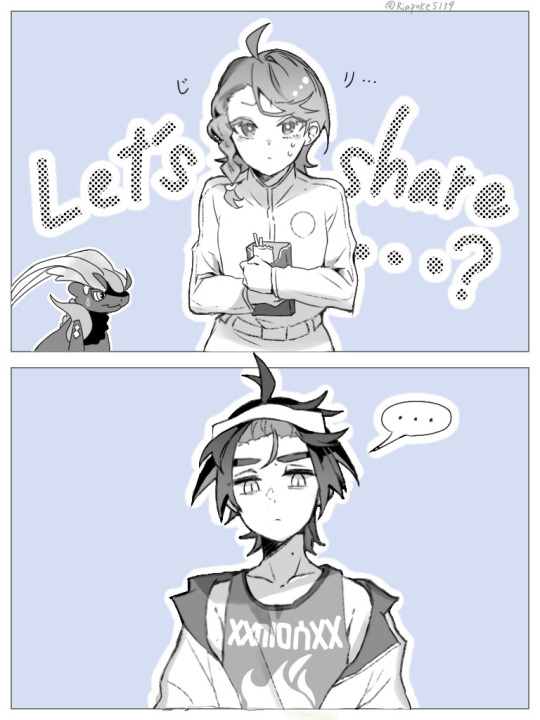




The thing I love about this ship is how much the vibe changes from teal mask to indigo disk because of the whole friends to enemies to lovers dynamic
#kieran WOULD try to act all cool but would break composure for Juliana#and then get embarrassed later and overanalyze it#as well as his entire life#we support Kieran here#and Juliana is an unproblematic sweetheart/lowkey therapy friend of the entire group#pokemon#pokemon fanart#pokemon meme#pokemon comic#dipplinshipping#kieran pokemon#juliana pokemon#kieran x juliana#juliana x kieran#kieran x juliana pokemon#juliana x kieran pokemon#pokemon sv#pokemon dlc#pokemon teal mask#pokemon indigo disk#pokemon scarlet/violet#pokemon scarlet and violet#carmine pokemon#carmine is being ICONIC
1K notes
·
View notes
Text


I haven't drawn Floyd that much take some warmups
#rainyart#trolls#trolls branch#trolls floyd#trolls band together#ceo of drawing things a million people probably have but IDFC!!!! the song literally came into my shuffle as i was drawing the first slide#AND IT HURT REAL GOOD SO I HAD TO OKAY#i have so many thoughts about floyd i kinda tried to convey the vibe of a fucking 10-12 year old kid whos grown up in a very very fucking#disfunctional household who knows he's doing a really horrible thing but he is just SO fucking tired. SO tired and needs to get away#and man i GET IT okay. i get it. why wouldnt he wanna get away okay! of COURSE he would wanna get out and establish himself/figure out who#he is outside of a group! without a label to define how he acts!#oh my fucking GODDDD#but my boy..... branch.... branch!!!!!1! 😭😭😭💔💔💔#anyways anyways anyways. yap sesh over ill see you all next time teehee 😁💥 *kicks my feet*#if u read all that. we r kissing
226 notes
·
View notes